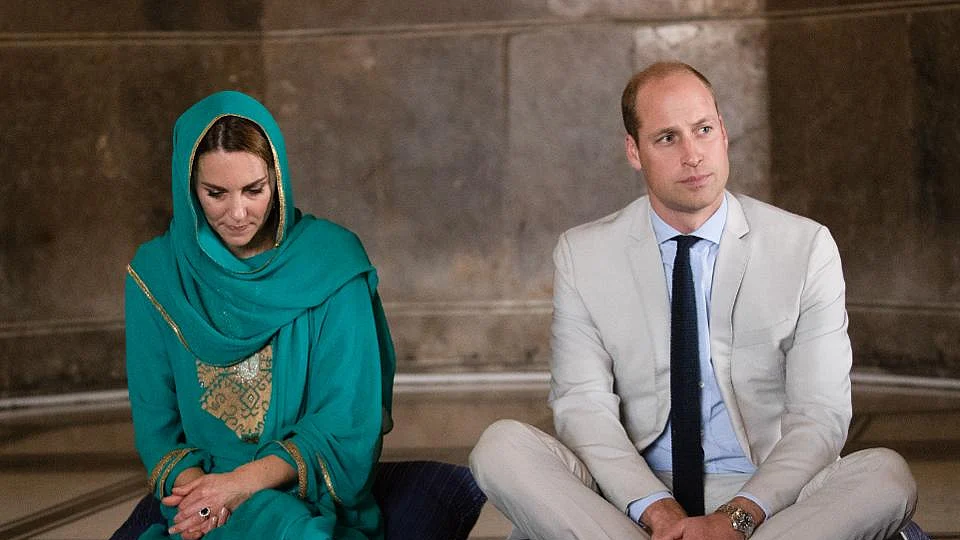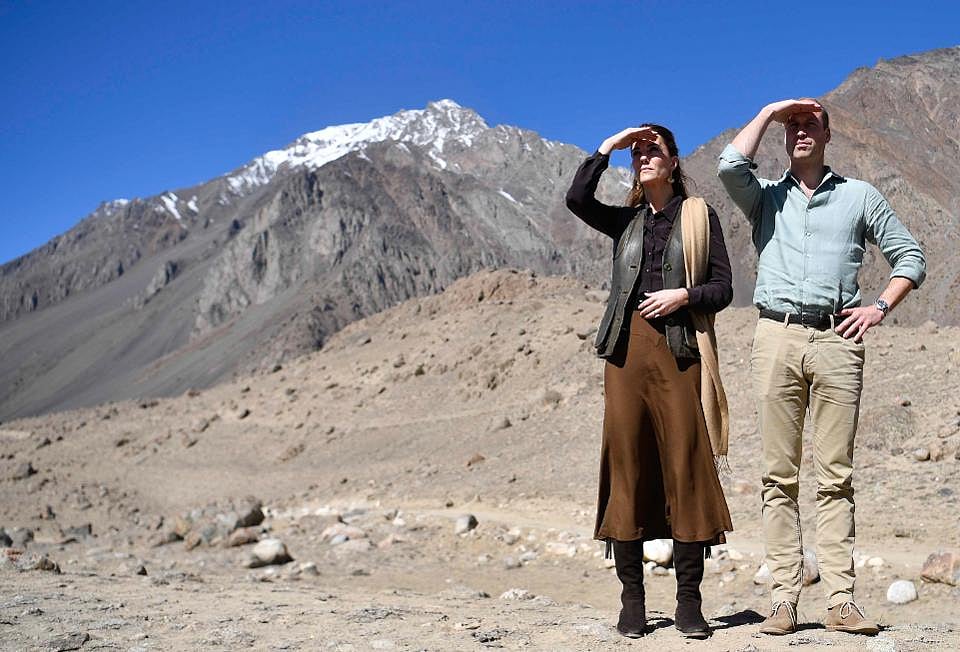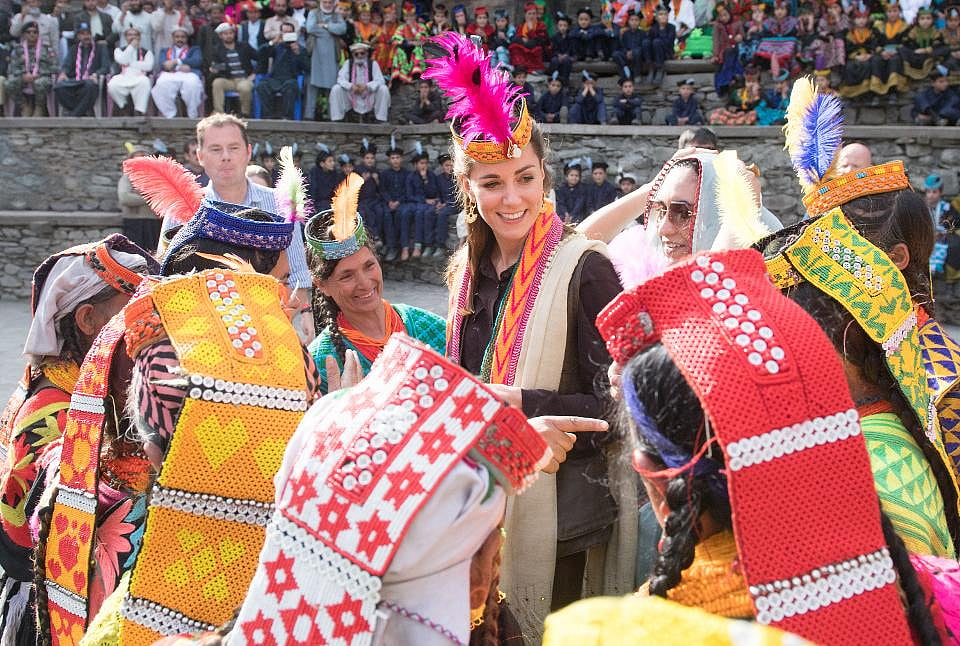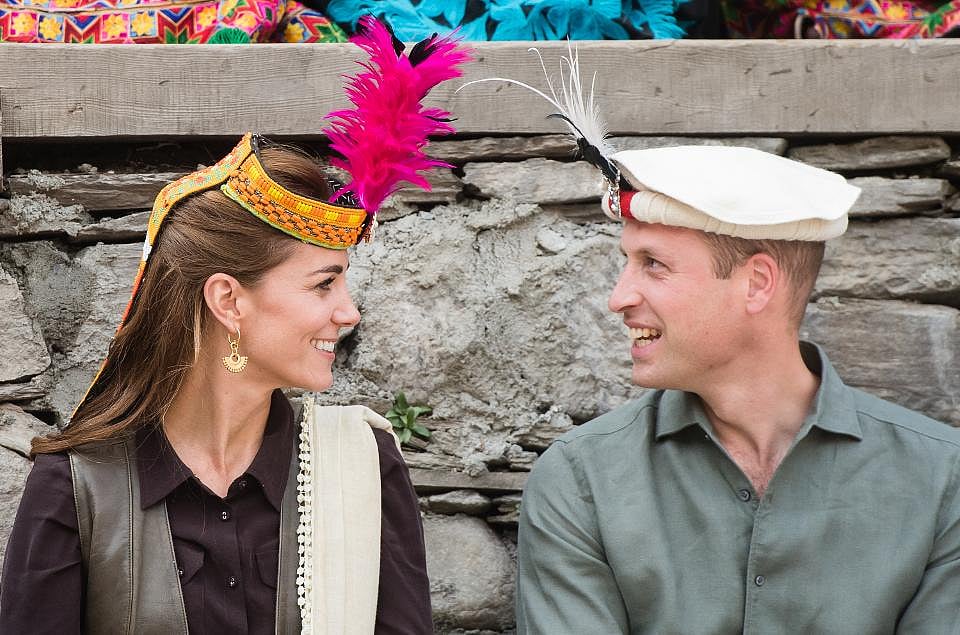Imran Khan pulls off a PR coup: Move to bring Pakistan in from the cold
British Airways resumed a limited service to Islamabad in June. Imran Khan is mediating between Saudi Arabia and Iran. And now the British royal visit to Pakistan and glowing coverage are indicators

In case New Delhi didn’t notice, Britain has just helped Imran Khan pull off an extraordinary PR coup in his attempt to counter Pakistan’s portrayal by India and other detractors as a terrorist state unfit to engage with.
On the face of it, last week’s visit of the British royal couple to Pakistan might have seemed like an extended fashion parade with the Duke and Duchess of Cambridge drafted in to showcase Pakistani designer clothes.
But behind those glamorous images William’s shimmering shervani and Kate’s attractive salwar kameez and kurtas was a carefully choreographed British plan to bring Pakistan in from the cold.
According to observers, the decision to dispatch the royal couple to a country, routinely described as one of the world’s most dangerous places in the world, was by far the most overt show of British support for Khan as he struggles to give Pakistan an image makeover.
Normally, Buckingham Palace is notoriously coy about commenting on royal visits which are treated as mostly ceremonial affairs —intended, essentially, to keep the royals busy and justify the millions of pounds of taxpayers’ money spent on maintaining it. But ahead of the Pakistan tour, it was remarkably keen to let it be known that this was not just another routine visit but had a strong political purpose: namely, to put Pakistan “back on the map”, and declare it as a “safe” country ,as one Palace official was quoted as saying. Indeed, safe enough for the royalty to go there.
In a break with the “no comment” policy, royal sources went out of their way to brief the media about its significance. “The duke and duchess will be covering a lot of ground and are keen to put Pakistan back on the map as a country that is now much safer than people expect it to be,” The Sunday Times reported quoting a source.
The visit was aimed at showcasing Pakistan as a “dynamic, aspirational and modern” country—words used in a statement issued by the Foreign and Commonwealth Office ahead of the tour. It was at FCO’s “request” that the visit was organised.
The statement which, with its flattering references to Pakistan’s natural beauty, sounded as though it was drafted by the Pakistan tourist board said: “Their Royal Highnesses the Duke and Duchess of Cambridge ... will tour the country to see the dynamic, aspirational and modern Pakistan. From the modern leafy capital Islamabad, to the vibrant city of Lahore, the mountainous countryside in the North, and the strategically important border regions to the West, the visit will span over 1000km, and will take in Pakistan’s rich culture, its diverse communities, and its beautiful landscapes.”
The theme of “safe” and “modern” Pakistan was repeatedly echoed by William in his tour speeches leaden with references to its “historical relationship” with Britain —and promises of British support in its future endeavours. Echoing Pakistani narrative that it is a victim rather than an exporter of terror as alleged by India, he “spoke of the sacrifices made by Pakistan in the war against terrorism and the importance of the country’s security in keeping people safe on ‘the streets of the UK’ “, according to one British media report.
“You can always rely on the UK to keep playing an important role as a key partner and friend,” he said.
Underlining the visit’s importance to Pakistan, veteran Pakistan watcher Christina Lamb, wrote in The Sunday Times: ” The country’s cricket captain turned prime minister Imran Khan hopes to use last week’s visit to turn around Pakistan’s reputation as a dangerous terrorist state that sheltered the Taliban and Osama bin Laden and showcase it as a tourist and business destination.”
In a preview of how Pakistan is likely to play it up, Major General Asif Ghafoor, Director general of Pakistan’s military propaganda division described the visit as “an important visit to Pakistan”.
“We want people to see the normality on the ground,” he said.
It was the first official royal visit to Pakistan since Prince Charles and Camilla visited back in 2006. It had come to be regarded as a “no-go” zone for the West since a terror attack outside Marriott hotel in Islamabad in 2008 killed more than 50 people. Western airlines including British Airways stopped flying to Pakistan. BA resumed a limited operation in June after ten years.
The British move came as Washington too appeared to smile on Islamabad with President Donald Trump reportedly seeking Khan’s good offices to reach out to Iran, and also entrusting him with the task of brokering peace between Iran and Saudi Arabia.
Khan, who visited Tehran and Riyadh, has offered Islamabad, as a neutral venue for Saudi and Iranian leaders to meet to "iron out [their] differences".
There is speculation that the royal visit and Trump’s overture could be part of a larger Western attempt to rehabilitate Pakistan after a decade during which it was treated as a pariah state.
If so, India might soon come under pressure to take a fresh look at its increasingly combative Pakistan policy.
Follow us on: Facebook, Twitter, Google News, Instagram
Join our official telegram channel (@nationalherald) and stay updated with the latest headlines



